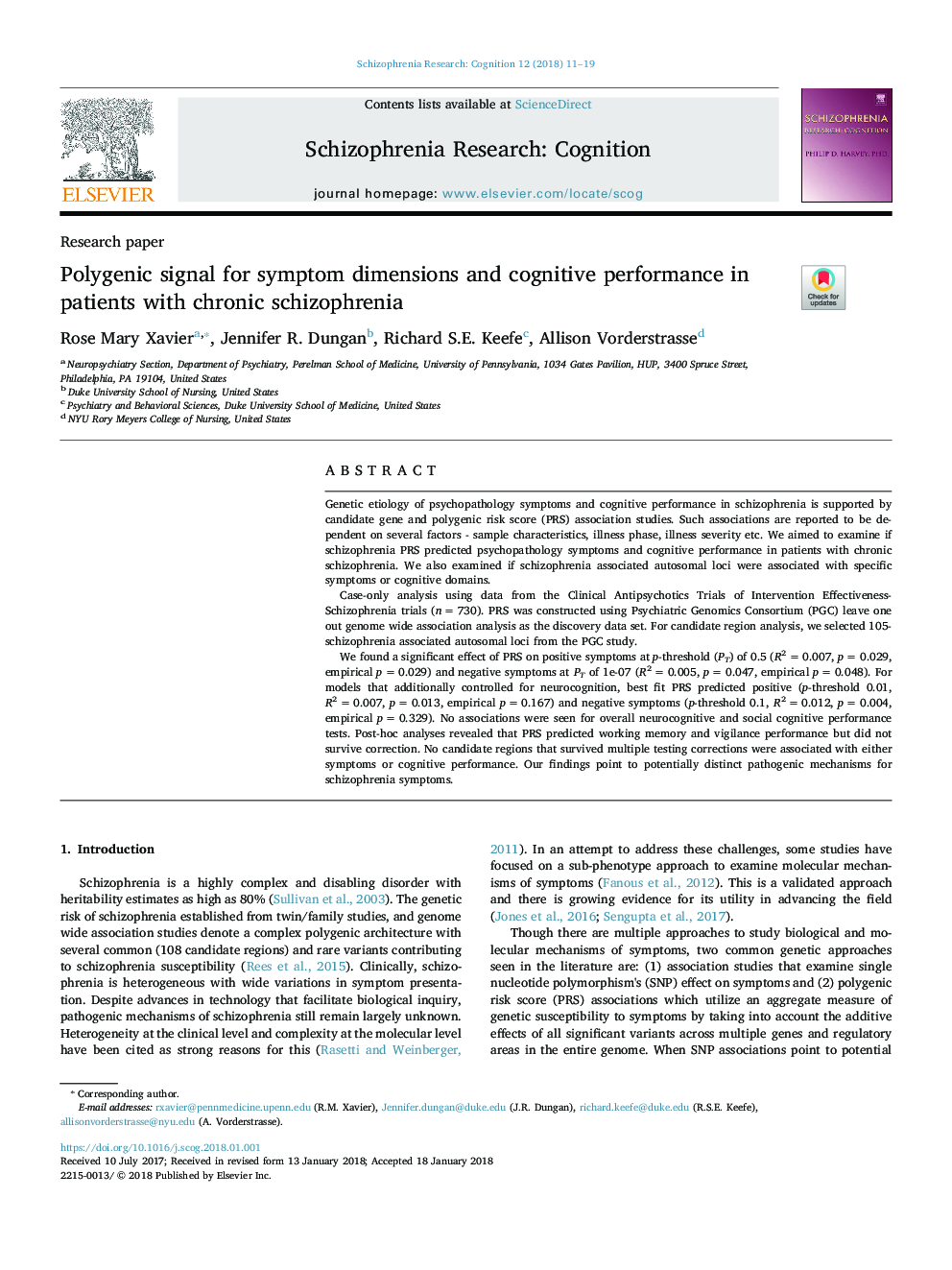| Article ID | Journal | Published Year | Pages | File Type |
|---|---|---|---|---|
| 8816406 | Schizophrenia Research: Cognition | 2018 | 9 Pages |
Abstract
We found a significant effect of PRS on positive symptoms at p-threshold (PT) of 0.5 (R2â¯=â¯0.007, pâ¯=â¯0.029, empirical pâ¯=â¯0.029) and negative symptoms at PT of 1e-07 (R2â¯=â¯0.005, pâ¯=â¯0.047, empirical pâ¯=â¯0.048). For models that additionally controlled for neurocognition, best fit PRS predicted positive (p-threshold 0.01, R2â¯=â¯0.007, pâ¯=â¯0.013, empirical pâ¯=â¯0.167) and negative symptoms (p-threshold 0.1, R2â¯=â¯0.012, pâ¯=â¯0.004, empirical pâ¯=â¯0.329). No associations were seen for overall neurocognitive and social cognitive performance tests. Post-hoc analyses revealed that PRS predicted working memory and vigilance performance but did not survive correction. No candidate regions that survived multiple testing corrections were associated with either symptoms or cognitive performance. Our findings point to potentially distinct pathogenic mechanisms for schizophrenia symptoms.
Related Topics
Life Sciences
Neuroscience
Biological Psychiatry
Authors
Rose Mary Xavier, Jennifer R. Dungan, Richard S.E. Keefe, Allison Vorderstrasse,
